Nature Knows and Psionic Success
God provides
YouTube openly allows children to watch violent gun massacre depiction video because it promotes a left-wing narrative of HATE

( Natural News ) If your video suddenly becomes banned by YouTube and you receive a “Community Guidelines strike,” it could be that your video violated YouTube’s guidelines, which prohibit any videos from encouraging violence and drug abuse. If this rule was fair and applied equally, then why did YouTube openly allow children to view a violent gun massacre depiction video, while banning the same video that included important commentary that exposed the video’s message of hate? The problem with YouTube’s rules is they are manipulated to prop up one agenda of leftist brainwashing and hate, while also censoring out any dissidence or important debate. You see, the violent video that YouTube accepted, that was promoted by YouTube to go viral, is a video that essentially teaches kids that black people are victims to whites, that Republicans value firearms over lives, and that the true heroes are social justice warriors who go around whining about “hate speech” and waving flags that call for gun confiscation. The same video, when layered with commentary that uses critical thinking and facts to debunk the video’s underlying agenda, is ultimately restricted by YouTube . This proves that it’s the speech that YouTube is censoring out, not the content of the violence. Slowly but surely, using algorithms and a team of leftist employees, YouTube is constricting diversity of thought and culling people’s freedom to think critically. YouTube is slowly severing your ability to debate the leftists’ agenda, which only thrives on identity politics and race baiting. YouTube is using their power over people’s content to control what people think is popular, manipulating people to sheepishly go along with the “popular opinion” that they have cleverly dictated. If your video was banned, it could be that your political speech, your social commentary, or your facts […]
Natural, Earth Grown Supplements That Improve Brain Power
The concept of nootropics is quickly taking off across the web and among important executives. These are supplements and medications that can improve concentration, memory and decision making and more and more students and CEOs are starting to rely on them. Do they work? That all depends on which ones you use. Some don’t do anything, some are highly effective and others are dangerous. It’s the dangerous ones that you really need to worry about. These are the nootropics that work by drastically altering neurochemicals for short periods of time. In the short run, these can give you a boost in concentration. In the long term though, they might risk tolerance and dependence – or might just make you too ‘wired’ to function normally. But not every nootropic is a synthetic substance formulated in a lab. Many nootropics are actually completely natural and may already be a part of your normal diet. In this article we’ll look at some natural, earth growth supplements that can enhance your brain power and we’ll discuss which ones are worth your money. Vitamins and Minerals The best place to start are with vitamins and minerals. We already get all sorts of vitamins and minerals in our diet and many of these are already supportive to brain function. Supplementing with extra vitamins and minerals though can help us to take these benefits further, without introducing anything new or strange into our regime. In terms of vitamins and minerals, B complex vitamins are some of the most potent and effective for improving brain power. B6 is considered by many to be a good ‘starter’ supplement for those getting into nootropics. That’s because B6 is a key building block in a number of key neurotransmitters. By getting more of this in your diet, your brain will […]
Science Explains How Stress Damages Your Memory (And 5 Ways to Get It Back)
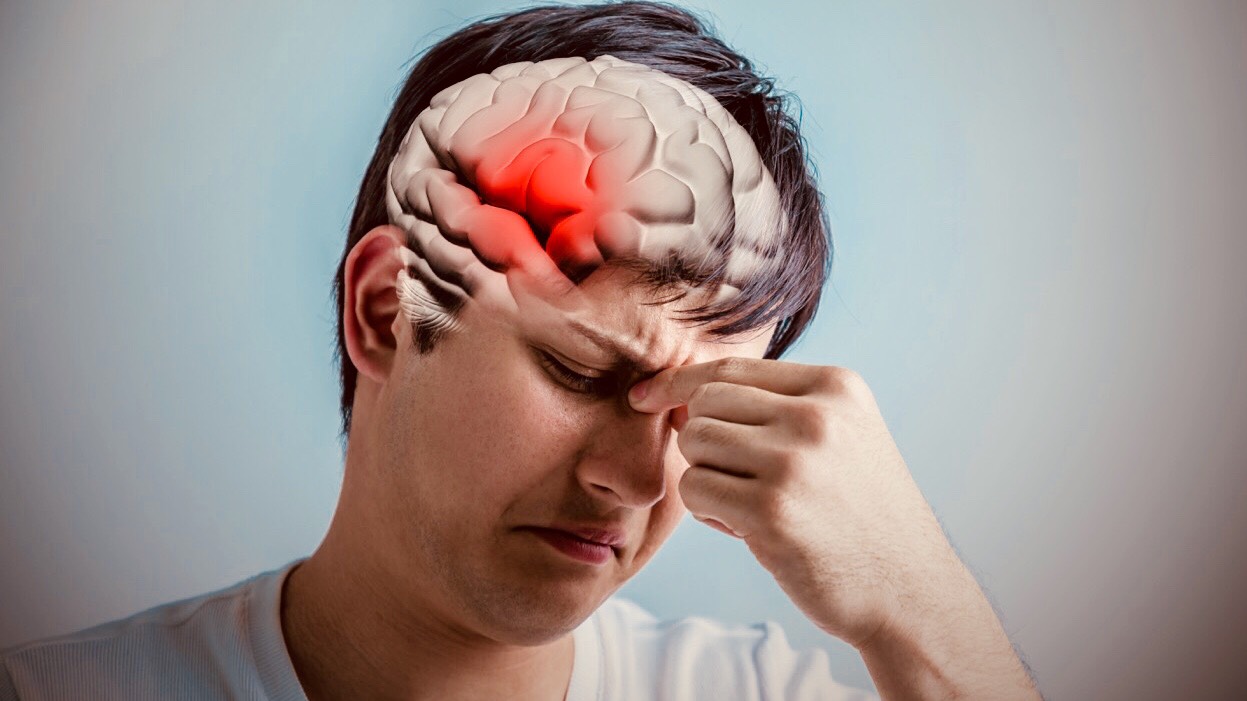
Our brain is a pretty amazing thing, no doubt. Weighing in at just over three pounds, the brain generates so much energy that it could power a low-voltage light bulb. It is capable of cellular growth throughout life, This almost superhuman ability is known as neuroplasticity . Stretched out, the number of blood vessels in your brain would extend over 100,000 miles – a distance capable of circling the earth four times! Amazing organ. But not without some flaws. Take for example the stress response. The stress response is vital to human survival. Without it, we wouldn’t bother safeguarding ourselves in life. It doesn’t take much brainstorming (unintentional pun) to think of ways this would be problematic. “Oh, an oncoming bus? No problem…” The End. While our natural stress response – sometimes known as the fight-or-flight response – has been good to us throughout evolution, it has some kinks. For one, we’re not jumping away from every moving bush, fearing it may be a leopard or tiger. Despite the disappearance of predators, our brain is still capable of reaching “high alert” lickity-split. All of that intelligence, all of those remarkable neurons, all of those years of evolution, and our brain still can’t tell the difference between real and perceived threats! But don’t worry, because it gets worse (before it gets better!). Stress and Brain Function Our brain and body are not designed to sustain a constant state of alert. When in a state of high alert, nearly all of your energy is redirected to your brain and muscles, which is fueled by the stress hormone cortisol. In turn, too much cortisol can damage a vital part of the brain called the hippocampus (pronounced “hippo-camp-us”). Cortisol has been shown to damage and kill cells in the hippocampus, the brain area […]
10 Best Weight Loss Supplements: Compare, Buy & Save
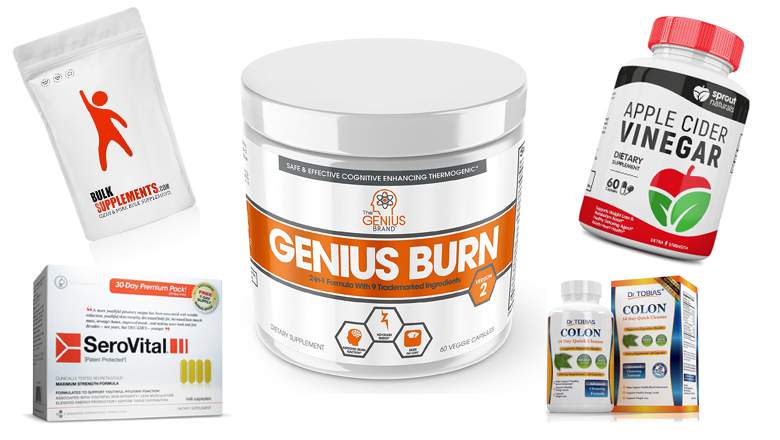
As summer rolls in, we’re all looking for that magic weight loss pill that we can swallow poolside with a beer. Just like “Limitless”, it doesn’t quite exist — but there are some supplements that can help speed up the process if you put in some effort. I spent a long time carefully putting this list together for the best weight lost supplements in 2018. They’re all different — some have stimulants, some contain Nootropics, some can be taken at night. All products on this list were tested and thoroughly examined on ReviewMeta.com to weed out fake reviews. We take your health seriously and will never suggest products with incentivized reviews. Always speak with a doctor if you are concerned about any side effects. Don’t forget: None of this stuff is magical, unfortunately. You still need to eat healthy, work out and follow an active lifestyle. These supplements help those actions out by rewarding you with more effective results. Avada Kedavra , fat cells. 1. CLA Softgels 1000mg by BulkSupplements Conjugated Linoleic Acid, more commonly known as CLA, is an Omega-6 fatty acid that’s derived from safflower oil. It’s a popular weight loss supplement for one reason: it works well for a lot of people. It helps support overall health by reducing inflammation as a powerful antioxidant. Antioxidants very effectively reduce free radical damage which can lead to signs of disease and aging. Lots of research suggests that CLA may curb appetite, improve metabolism, burn fat and help increase muscle tone. CLA can be taken as a dietary or preworkout supplement. Pros: Seriously incredible value for the price per pill CLA is one of the most widely-studied weight loss supplements No filler ingredients Boosts immune system Cons: This supplement should not be taken full time for weight loss. Please […]
Herbal Teas to Help Strengthen Your Mental Health
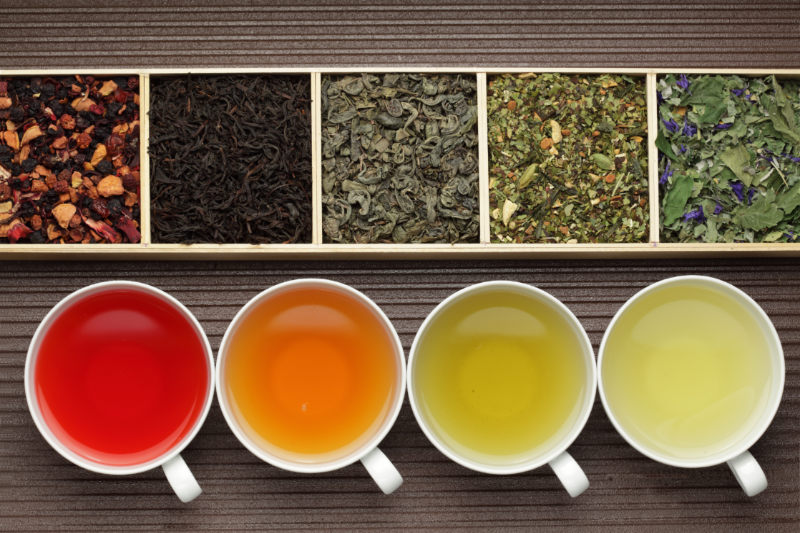
Shutterstock.com Do you have trouble concentrating or tackling your daily obligations? Whether you are experiencing brain fog or simply just wanting to improve your mental health , it’s time to indulge in a warm and soothing cup of herbal tea. It comes as no surprise that herbal tea has been used by our ancestors for thousands of years as herbal tea proposes a number of health benefits, including boosting cognitive health. Herbal Teas to Help Boost Cognitive Function From green tea to Gingko Biloba tea, these following teas are proven to be extremely effective for improving focus, memory, and mental clarity: Green Tea Shutterstock.com One of the more popular teas for enhancing focus, green tea has a variety of health benefits and is especially effective for promoting mental clarity and memory. Green tea is full of antioxidants, caffeine, and an amino acid called L-theanine , which all work together to help improve brain function. Brahmi Shutterstock.com Brahmi can help your brain fog by supporting your nervous system and brain. It is said that Brahmi helps the left and right spheres of our brain work together interdependently. This wonder herb has been found to increase memory, intellect, and focus, in addition to strengthening our capacity for learning. Gingko Biloba Shutterstock.com This particular herb has been used since the beginning of time primarily for its cognition-enhancing capabilities. Some research suggests that gingko biloba can help regenerate and heal the cells in our brain. More studies have suggested that this herb can also strengthen memory, lengthen your attention span and even boost your intelligence. Ashwagandha Shutterstock.com Whether you are feeling overwhelmed or suffering from mental exhaustion, Ashwagandha is the perfect tea for you . Used in traditional Ayurvedic medicine to help improve mental function, recent studies now suggest Ashwagandha can even help […]
Brain Health Supplements – Its a Need for Future Aspects
Portland, OR — ( SBWIRE ) — 05/31/2018 — Brain health supplements are natural compounds or herbal extracts, which have beneficial effects on brain functions such as to enhance memory and focus. Furthermore, the use of brain supplements has been proven effective for depression, sleep, anti-aging, and anxiety. Among the application segment, memory enhancement is major revenue generator, owing to rise in desire to enhance memory, increase in promotional activities, and surge in demand for memory enhancers. Get PDF Brochure For Details: https://www.alliedmarketresearch.com/request-sample/4581 Rise in awareness about brain health supplements, growth in number of promotional activities conducted by the key players, and increase in adoption of brain health supplements by students are some key factors that fuel the growth of the brain health supplements market. Rapid growth in e-commerce industries that results in easy product availability in the developing countries and rise in preference for natural supplements over pharmaceuticals are expected to boost the market growth during the forecast period. Brain health supplements are balanced blend of herbal extracts and nutrients that are used to improve brain functions such as concentration, focus, and memory. At present, natural compounds dominate the brain health supplements market, due to their effectiveness and minimal adverse effects. However, herbal extracts are expected to exhibit high market growth during the forecast period, owing to rise in awareness about herbal extracts in the developed regions. Memory enhancement and attention & focus segments held more than 50% of the market share in 2016. Make An Enquiry About Report: https://www.alliedmarketresearch.com/purchase-enquiry/4581 Key Findings of The Brain Health Supplements Market: The herbal extract segment is expected to grow with a CAGR of 9.8% from 2017 to 2023. In 2016, the supermarkets & hypermarkets segment held one-third share of the global market, and is expected to maintain its dominance throughout the […]
Stop your train of thought from getting derailed!
It’s the No. 1 epidemic facing seniors in America: brain fog. And in my own clinic here in the Boston area, it’s the top complaint I hear among 60- and 70-year-olds. But they’re far from alone. I’ll be honest — as a 60-something myself, I’ve experienced my fair share of “senior moments.” But when you start forgetting the names of people you just met… and you forget why you just walked into a room… those “normal” senior moments can become embarrassing and worrisome. Fortunately, there IS something you can do about those “brain burps,” even if your own doc may tell you otherwise. See, he doesn’t know about this trick I’m about to share with you because it’s been WITHHELD from him! This natural cure isn’t some new drug… and it’s definitely not ANYTHING you can pick up at the doctor’s office. Some say could be the cure for brain fog. And if the public found out about it – and how effective it is – it could put a big dent in Big Pharma’s bottom line. So, those money-grubbing execs are doing everything in their power to suppress this information from your doc… and from YOU. But while this natural cure is practically unheard of in the States, the fine folks of a remote South African village have known about it for years. It’s an exotic, drought-tolerant plant called Sceletium tortuosum. In 2014, doctors gave 25 mg of it to 20 men and women every day over the course of three weeks. Then, they put each person through a series of mental tests… and the results were stunning. After just 21 days, the subjects showed dramatic improvement — an 80 percent improvement in their ability to focus and pay attention and a 73 percent improvement in their ability […]
Wan’t a healthy brain? Start making more friends!

related stories Having more friends and strong social connections may slow brain ageing, preserve the mind and improve the quality of life, new research suggests. According to the study, brain function in the hippocampus-brain area associated with memory, emotions and motivation-markedly declines with age, even in the absence of dementia. Exercise and social ties are known to preserve memory in this region in people. "Our research suggests that merely having a larger social network can positively influence the ageing brain," said lead researcher Elizabeth Kirby from the Neurological Institute at Ohio State University-Columbus, the US. In the study, published in the journal Frontiers in Aging Neuroscience, the team studied two groups of mice aged between 15-18 months for three months, when their natural memory declines. While one group lived in pairs, which Kirby refers to as the "old-couple model", the other group lived with six other roommates, a scenario that allowed for "complex interactions". Their memory was tested by making the mice recognise a toy, such as a plastic car which had been moved to a new location. The results showed that mice who were living in a group had better brain health and memory. "With the pair-housed mice, they had no idea that the object had moved. The group-housed mice were much better at remembering what they’d seen before and went to the toy in a new location, ignoring another toy that had not moved," Kirby said. Further, examining the brain tissue of the mice showed increased inflammation in the pair-housed mice-a biological evidence of eroded cognitive health. "The group-housed mice had fewer signs of this inflammation, meaning that their brains didn’t look as ‘old’ as those that lived in pairs," Kirby said. Future research should explore the molecular explanations for the connection between socialisation and improved memory […]
Social ties could preserve memory, slow brain aging
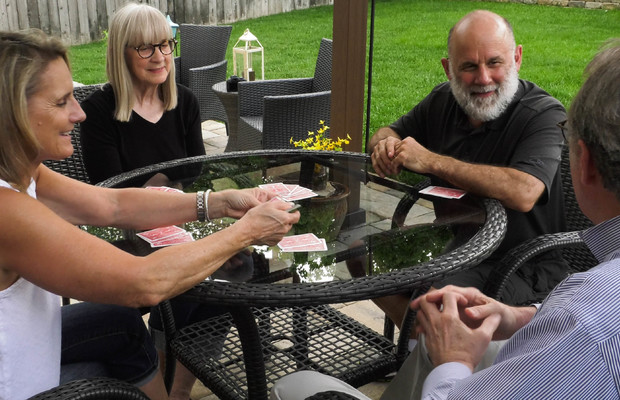
Maintaining a strong social network into retirement might lead to a better memory and brain health, new research in mice suggests (The Ohio State University Wexner Medical Center photo) COLUMBUS, Ohio – A strong social network could be the key to preserving memory. New research from The Ohio State University found that mice housed in groups had better memories and healthier brains than animals that lived in pairs. The discovery bolsters a body of research in humans and animals that supports the role of social connections in preserving the mind and improving quality of life, said lead researcher Elizabeth Kirby , an assistant professor of behavioral neuroscience and member of the Center for Chronic Brain Injury at Ohio State. Liz Kirby “Our research suggests that merely having a larger social network can positively influence the aging brain,” said Kirby, who is a member of the Neurological Institute at Ohio State’s Wexner Medical Center. Her research appears in the journal Frontiers in Aging Neuroscience. “We know that in humans there’s a strong correlation between cognitive health and social connections, but we don’t know if it’s having a group of friends that’s protecting people or if it’s that people with declining brain health withdraw from their human connections,” Kirby said. This study was designed to answer that hard-to-crack question with an animal model. Some mice lived in pairs, which Kirby refers to as the “old-couple model.” Others were housed for three months with six other roommates, a scenario that allows for “pretty complex interactions.” The mice were 15 months to 18 months old during the experiment – a time of significant natural memory decline in the rodent lifespan. “It’s like mouse post-retirement age. If they drove, they’d be forgetting where the keys are or where they parked the car more often,” […]
Superfood recipes for better cognitive function

Superfood Recipes for Better Cognitive Function Superfoods are all the rage these days and for good reason . These foods which you can find in pretty much any grocery store pack a ton of nutrients into one item. Combine more than one, and you got yourself a very healthy meal. People gravitate toward superfoods for a variety of reasons. Maybe they’re hoping to boost their immune systems, or perhaps they need some extra energy throughout the day. One way superfoods can benefit you is through improved cognitive function, primarily helping you focus, improving memory, and more. The following are just a few superfood recipes you’ll want to consider if you’re looking for better brain health. Sweet Potato Hash with Eggs This recipe from Jo Cooks is a great and healthy way to start out your day. Sweet potatoes are already packed with nutrients, and egg yolks contain a lot of choline, which can lead to people having more positive feelings. The sweet potato hash recipe is also extremely useful since you can add a large assortment of other healthy ingredients if you feel like it. Along with bell peppers and onions, you’ll have an amazing breakfast at the ready. Give your brain a helpful boost by trying this meal out. It will help you stay mentally active all day no matter what you’re doing. Chocolate Blueberry Smoothie From the Greatist, this smoothie recipe is another fun way to have breakfast, or you could take it for a snack at work. Blueberries in particular are well known for their health benefits, especially for the brain. That’s because blueberries have a lot of antioxidants, which can help your brain as well as other parts of the body. In addition to that, blueberries also have a lot of gallic acid, which can […]
Best Brain Supplements for Memory, Focus & Health

Looking for the very best brain supplements? Consider this your reading list. Just as with building and maintaining the function of your muscles, having good brain health isn’t all about brain training and meditation. If you didn’t already know, then you might just be surprised to learn that the health and function of your brain can be affected by what you put in your stomach too. The number of people who will develop dementia in the UK is predicted to soar to over 1 million by 2025, and 2 million by 2051 – a condition which causes memory loss and decline in brain function. But you needn’t be too befuddled by the numbers as, although some ageing is inevitable, there are things you can do to keep your grey matter in check. Having a good diet is the first step to protecting your cerebral prowess, but if you think you’re falling short, there are plenty of supplements that can help you back on track. We explore the best brain supplements to keep you thinking sharp. Why Use Supplements For Brain Health? Your brain requires nourishment, hydration, and energy to work at its most focussed. Ever had an exam and found you’ve been able to concentrate better than on other occasions? Your diet may well have played a part in that. Certain foods, including fruit and vegetables, have properties that can prevent your brain from damage, while nutritional supplements containing these properties have also been shown to support memory and the maintenance of brain function. It’s always important to have a healthy diet, but supplements can fill in the gaps where you fall a little short as they can be advantageous for the health of your brain just like other supplements. What’s more, other foods can actually be detrimental to […]
Boosting memory by combining electrical brain stimulation and learning
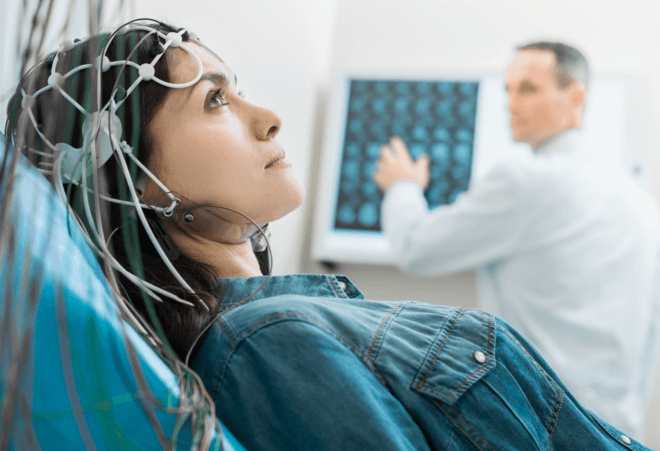
In 47 CE, Scribonius Largus, court physician to the Roman emperor Claudius, described in his Compositiones a method for treating chronic migraines: place torpedo fish on the scalps of patients to ease their pain with electric shocks. Largus was on the right path; our brains are comprised of electrical signals that influence how brain cells communicate with each other and in turn affect cognitive processes such as memory, emotion and attention. The science of brain stimulation – altering electrical signals in the brain – has, needless to say, changed in the past 2,000 years. Today we have a handful of transcranial direct current stimulation (tDCS) devices that deliver constant, low current to specific regions of the brain through electrodes on the scalp, for users ranging from online video-gamers to professional athletes and people with depression. Yet cognitive neuroscientists are still working to understand just how much we can influence brain signals and improve cognition with these techniques. Brain stimulation by tDCS is non-invasive and inexpensive. Some scientists think it increases the likelihood that neurons will fire, altering neural connections and potentially improving the cognitive skills associated with specific brain regions. Neural networks associated with attention control can be targeted to improve focus in people with attention deficit-hyperactivity disorder (ADHD). Or people who have a hard time remembering shopping lists and phone numbers might like to target brain areas associated with short-term (also known as working) memory in order to enhance this cognitive process. However, the effects of tDCS are inconclusive across a wide body of peer-reviewed studies, particularly after a single session. In fact, some experts question whether enough electrical stimulation from the technique is passing through the scalp into the brain to alter connections between brain cells at all. Notably, the neuroscientist György Buzsáki at New York University […]
Are cognitive boost supplements for sharper brain good?
Research nootropics. There are many, and yes, some improve mental performance. Simply smelling Rosemary oil when learning somethings improves long term memory 40%. There is a lot of research and many products. Some are more effective than others, and some work better for an individual than others. Some people will notice no effects at all and other may see dramatic effects. For most, it is in between those extremes. None will make you a genius if you are not. They may sharpen your performance temporarily. There are some, that with continued use, may encourage neural growth – but, the research is not all that solid. An excellent – if dated – introduction to the topic can be found in the books “Smart Drugs” and “Smart Drugs II”. Some people use “stacks” of different products to achieve a personally tailored effect. I personally take some supplements, based on my individual needs. I take Vinpocetine (an extract of the periwinkle plant) which has a mild cognitive effect (not really even noticeable) because it also helps to improve eyesight and to protect the brain in case of a stroke (the main reason). I eat a half-dozen eggs every day for choline, and additionally take Huperzine (which reduces acetylcholine reuptake) because with my mental load I can easily deplete my stores of choline and my acetylcholine levels become lower than optimal (I learned that the hard way). The choline doesn’t make me “sharper”, but prevents me from becoming “duller”. I take Gingko Biloba because it increases blood flow to the brain. It may have a very mild effect, but is good for the brain. I use an aromatherapy diffuser with Rosemary when studying. Those are not everything that I might consider or take ocassionally and there are hundreds of possible products. None are […]
Drink water to boost your brain function

Do you struggle with getting the volume of water you need (aka drinking half your body weight in ounces … daily!)? I get it, the struggle is real! One of the most common things people tell me is, “I don’t drink enough water!” With up to 70 percent of your body being water, there’s no question that it plays an important role in your health. It transports nutrients and helps flush toxins from your body. It also balances your body’s temperature, lubricates your joints and provides structure to your internal organs, tissues and cells. It also aids in cardiovascular function and weight management. In fact, research shows that your heart works harder if you’re not drinking enough water. The reason is that your blood becomes thicker when there is less liquid in your body, and your heart muscles must work harder to pump your blood through the circulatory system. Yup! It’s important! A few studies in the American College of Sports Medicine Journal show that even mild dehydration can impair mood, memory and brain performance. It can even increase headache frequency. It’s a running joke in our house … because if you have a headache or feel irritable, you will be asked, “how much water have you drank today?” Dehydration can occur if you lose as little as 2 percent of your body’s water content … and that’s not very much. However, as little as 1 percent dehydration impairs cognitive function (attentiveness, critical thinking skills and memory). Dehydration develops from poor fluid intake or excessive fluid losses through sweat, urine or loose bowel movements. In addition to improving cognitive function, water can also relieve constipation and aid in sustaining weight loss by improving a sluggish and slow metabolism. It’s also important to know that we physically feel hunger and […]
Alternatives for opioids: Does Integrative Medicine hold the answers for non-addictive pain treatment?

( Natural News ) A meta-analysis published online in the Anesthesia & Analgesia journal shows that integrative medicine treatments — such as yoga, acupuncture and mindfulness meditation as well as relaxation techniques and massage therapy — show preliminary efficacy in pain management. A team of researchers at the Harvard Medical School reviewed up to 32 studies as part of the review. The experts observed that acupuncture showed the strongest evidence in alleviating chronic pain. Likewise, a number of studies have demonstrated that undergoing acupuncture treatment may help reduce opioid doses needed to control pain. Acupuncture is also associated with lower odds of developing harmful opioid side effects. The results also showed that yoga and its many forms was significantly effective in relieving lower back pain, osteoarthritis, headaches, and other types of pain. The researchers found that performing relaxation techniques may help alleviate lower back pain, while mindfulness-based programs help increase pain threshold among patients. Massage therapy, Tai Chi and osteopathic and spinal manipulation have also demonstrated similar pain management efficacy. “In the current opioid crisis era, many integrative medical therapies can be used as complements to mainstream medicine to address pain and reduce opioid abuse and addiction-related disease. The consensus and results of this review suggest that complementary health approaches can help to improve pain and reduce opioid use. Integrative medicine for pain can play a major role in reducing the frequency and amount of opioid usage,” the researchers write in a News Wise article . Support our mission to keep you informed : Discover the extraordinary benefits of turmeric gummy bears and organic "turmeric gold" liquid extract , both laboratory tested for heavy metals, microbiology and safety. Naturally high in potent curcuminoids. Delicious formulations. All purchases support this website (as well as your good health). See availability here. […]
CONFIRMED: Antidepressants and other drugs cause dementia

( Natural News ) The largest and most detailed study of its kind has just confirmed that a group of chemical drugs known as anticholinergics, which include antidepressants, antispasmodics, Parkinson’s drugs and bladder control medications, among others, may be directly linked to the development of dementia. The study, which was conducted by researchers from the University of East Anglia in the United Kingdom, found that long-term use of these drugs is strongly linked to the onset of dementia, sometimes many years later. (Related: Dementia and Alzheimer’s disease overtake heart disease as the leading cause of death in America .) The devastating effects of dementia The World Health Organization (WHO) explains that dementia is a progressive condition caused by one of several brain illnesses that affect thinking, memory, behavior and the ability to cope with normal everyday activities. Over 47 million people worldwide have been diagnosed with dementia, and that number is expected to rise to over 75 million by 2030, and to triple by 2050. Dementia is a devastating diagnosis for both the patients and their caregivers. In many countries, sufferers are stigmatized, and patients and their families are damaged psychologically, emotionally and economically. Dementia costs the planet around $818 billion each year, and that figure is set to keep escalating. Big Pharma at it again For their study, the East Anglia researchers conducted a sophisticated analysis of over 300,000 medical records which included prescriptions for various medications, including Paxil, Elavil, Zyprexa and Seroquel – antidepressant and bipolar medications. Other drugs which proved to be problematic were medications used for bladder conditions and Parkinson’s disease. Support our mission and protect your health: Organic Seeds of Life combines Red Raspberry Seed Power, Black Cumin Seed Power and Red Grape Seed Powder into the most potent nutrient-rich supplemental superfood powder you’ve […]
Pro-pedophilia messages now being embedded in Hollywood movies for CHILDREN

( Natural News ) The new children’s film “Show Dogs” has officially been pulled from theaters after parents everywhere sounded the alarm about its grossly pro-pedophilia plot line. It all started when Terina Maldonado of the popular “Macaroni Kid” blog published a blog article about the movie’s shocking and highly inappropriate content. According to Maldonado’s review of the film, which she saw with her family at an advanced screening, it basically centers around a talking police dog named Max and his human partner, Frank, who are tasked with rescuing a kidnapped baby panda from a prestigious dog show. The dog apparently uses his “street smarts” to outperform his competition, engaging in slap-stick and other comedic gags along the way. Like many children’s films with animated characters, each is played by a popular Hollywood voice that the audience is sure to recognize, including names like Ludacris the rapper and popular actor Will Arnett. There are also plenty of cute, fluffy dogs for viewers to look at while they journey along through the world of show dogs. It’s all fun and games until it comes time for Max to face his biggest challenge in the film: having his private parts inspected as part of the competitive process. Unlike the other dogs, Max has never had to endure any sort of groping, despite being “a tough dog from New York,” so naturally his partner Frank has to ease him into the process. This is where the film “Show Dogs” takes what Maldonado describes “a dark and disturbing” turn for the worse. After repeatedly resisting Frank’s advances early on, Max finally reaches the day where he has no choice but to let the judge touch him in order to win the competition, so he reluctantly agrees. “The judge’s hands slowly reach behind Max […]
6 More reasons NOT to drink diet soda
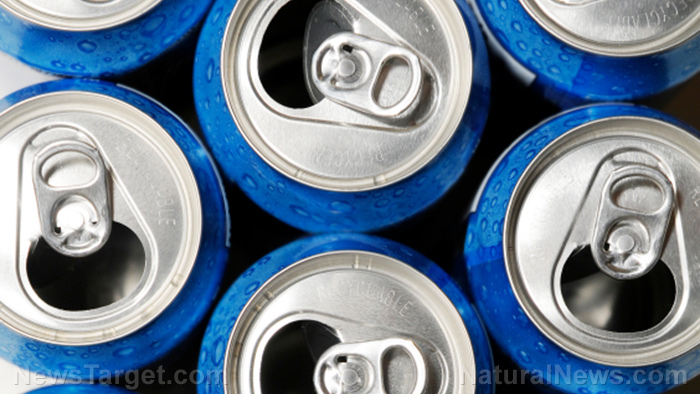
( Natural News ) Sodas are known to be harmful to health. Likewise, diet sodas are still bad for you . “Diet” sodas and zero-calorie drinks are marketed as “healthier” alternatives to regular soda. But do not be fooled, they are made out of artificial sweeteners, such as aspartame , cyclamates , saccharin , sucralose , and acesulfame potassium . Artificial sweeteners are said to contain no calories but are at least 300 times as sweet as sugar. As a result, most people are deceived by the thought that products labeled as zero-calorie retain their sweetness without causing weight gain or diabetes. (Related: Is Diet Soda Bad for You? Here’s What Happen to Your Body When You Drink It .) Here are six more reasons why you should not drink diet soda: Diet soda may increase the risk of Type 2 diabetes – Research has shown that although artificial sweeteners do not contain processed sugar, which is the main cause of blood sugar imbalances, they may increase your blood sugar levels. They do this by interrupting the balance of probiotics in your gut. Good gut bacteria contribute to maintaining blood sugar levels, and reducing them may raise the risk of Type 2 diabetes. Diet soda contributes to metabolic syndrome – Diet soda has been found to increase the risk of metabolic disorders, such as Type 2 diabetes and cardiovascular diseases like hyperglycemia, hypertension, and dyslipidemia. A study that focused on the effects of diet soda consumption found that people who drank diet soda every day for two years had a 36 percent increased risk of developing metabolic syndrome compared to those who did not consume diet sodas. In addition, they had a 67 percent increased risk of developing Type 2 diabetes. Diet soda makes you crave for sugar more […]
Want a golden memory? Eat golden spice
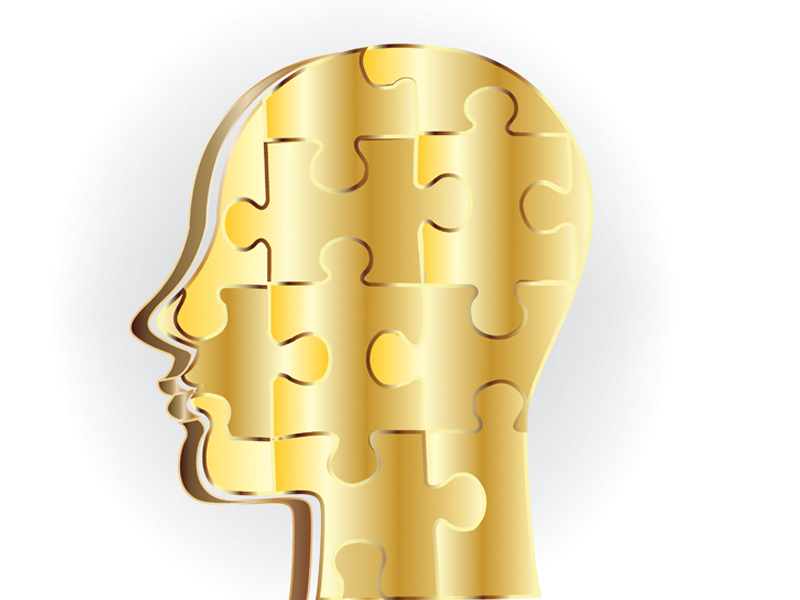
One of my fondest memories is a trip my husband and I took to Ireland. We rented a car and for two weeks drove all over the country, taking our time and enjoying seeing new places and meeting new people. We also fell in love with the food. But, strangely enough my favorite thing we ate during our entire trip wasn’t Irish at all. It was a curry pie we found at a little Indian store on the roadside. Yep, that’s right… My favorite food from our trip to Ireland was Indian food. I know… I’m weird! But, the curry in the pie was so flavorful that after we ate it, we went back and bought two more for the road. And, guess what… That golden spice that gave the curry such amazing flavor and me a memory to last a lifetime may also have helped me preserve my memory too (and even feel better… happier). That’s because a new study has discovered that the active ingredient in the spice, turmeric called curcumin can actually boost both your memory and your mood. Bring on the Indian food! Anti-inflammatory and antioxidant The study, conducted by UCLA researchers examined the memory performance in people with mild, age-related memory loss when taking a curcumin supplement versus placebo. You see, curcumin has previously been shown to be both anti-inflammatory and anti-oxidant in lab studies. And, scientists believe it could also be the reason that senior citizens in India, where curcumin is a dietary staple, have a lower prevalence of Alzheimer’s disease and better cognitive performance. The study participants were randomly assigned to receive either a placebo or 90 milligrams of curcumin twice daily for 18 months. All subjects received standardized cognitive assessments at the start of the study and at six-month intervals. Here’s […]
Nootropic Paradise Or How Brain-Enhancing Drugs Are Changing The Workplace

Cognitive enhancers, ‘smart drugs’, or, nootropics as they are known in science, have recently been getting a considerable amount of attention in the media. Whether it’s about tech-guys having LSD with breakfast in Silicon Valley or about some top university students cramming through finals in a stimulated frenzy of Modafinil or Adderall, it feels like most articles have an agenda either for or against these drugs. The thing is that the practice of nootropics isn’t really that black and white, and that’s why I felt compelled to make a genuine attempt to stick to the facts and offer you an honest introduction into the world of drugs that (presumably) make you think better. Furthermore, it’s good to know that the taxonomy of nootropics is really quite vast. The media has largely focused on just a few, like the ones already mentioned, while these represent only the tip of the iceberg. It would be well beyond the scope of this (or probably any) article to cover all of them. However, what we can do is sketch out the basics of the likely explanations why nootropics can help with how our brains think, and provide a roundup of a simple (and safe to use) ‘stack’, or diet of cognitive enhancers which are evidenced to be effective. We’ll then join the media bandwagon and cover microdosing with some more detail, because let’s be honest, it’s a really, really intriguing concept. That section will be coupled with an interview we had with Marvin Liao , partner at Silicon Valley-based micro VC fund 500 Startup and a firm believer in nootropics-assisted biohacking, or the ‘science’ of gaining control over the body’s biology in the name of optimised performance. Okay, to kick things off: it turns out, and I apologise if this ruins the excitement […]
